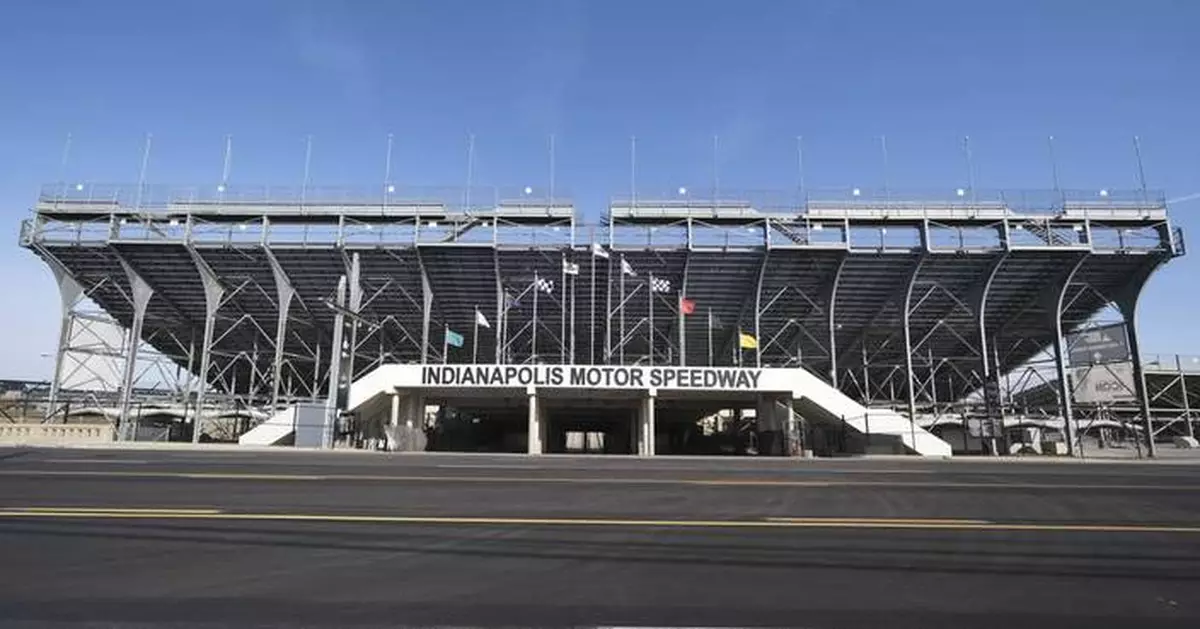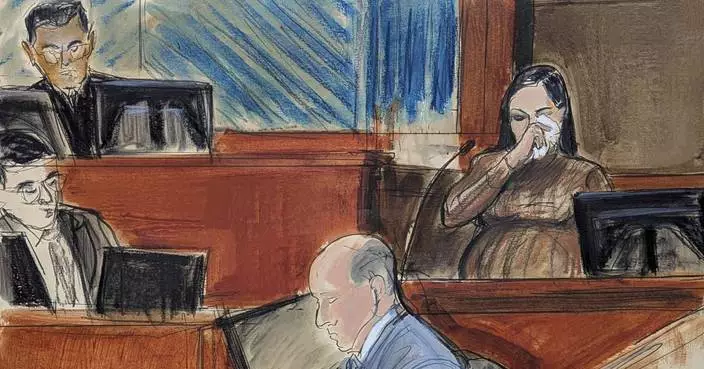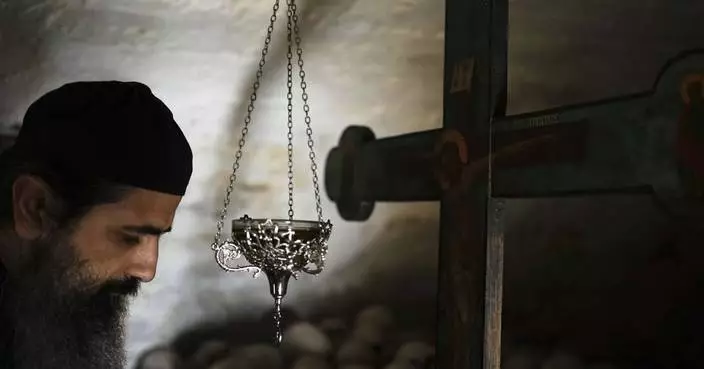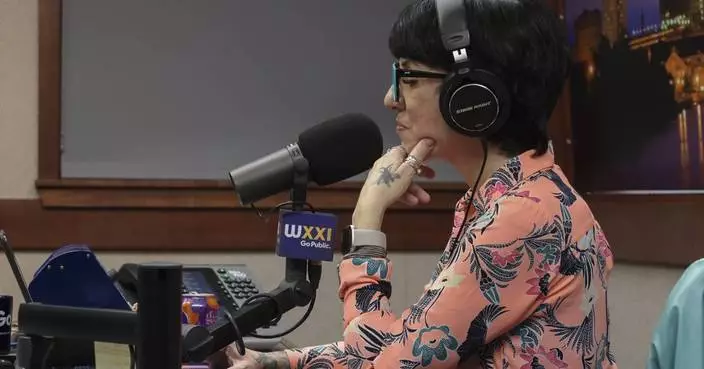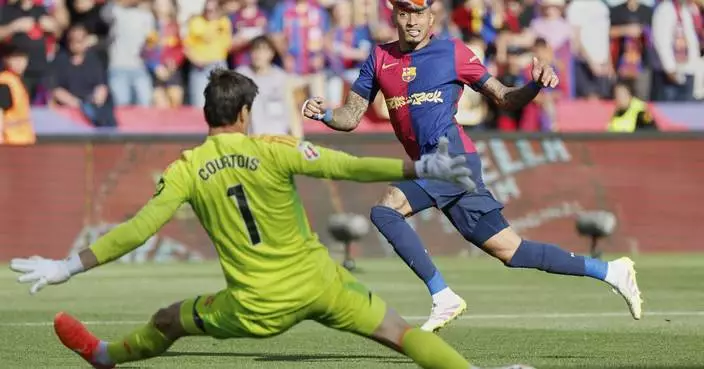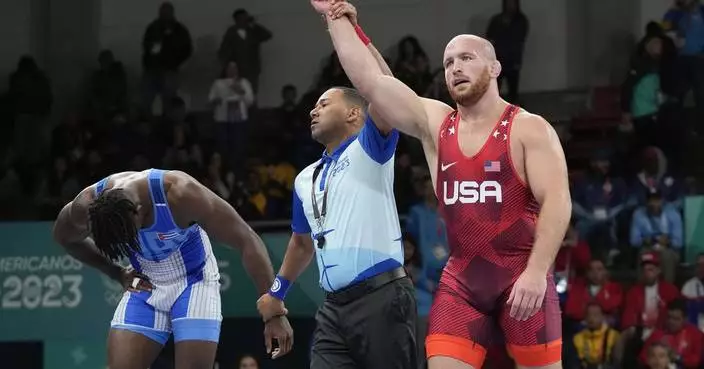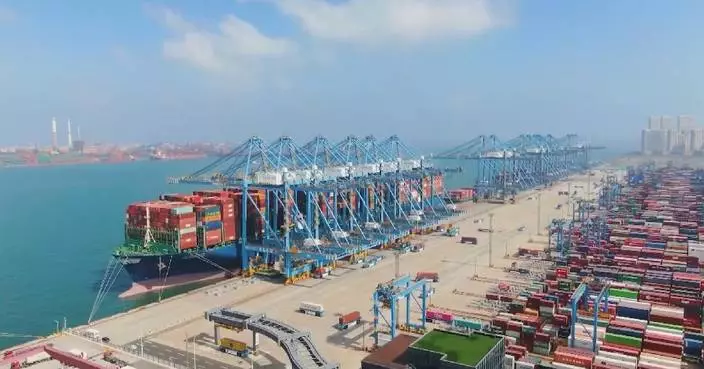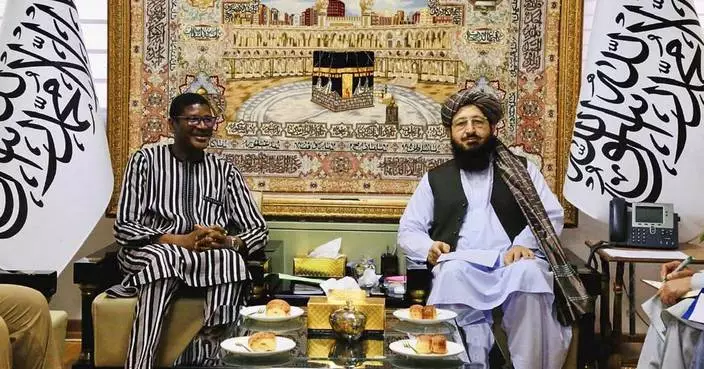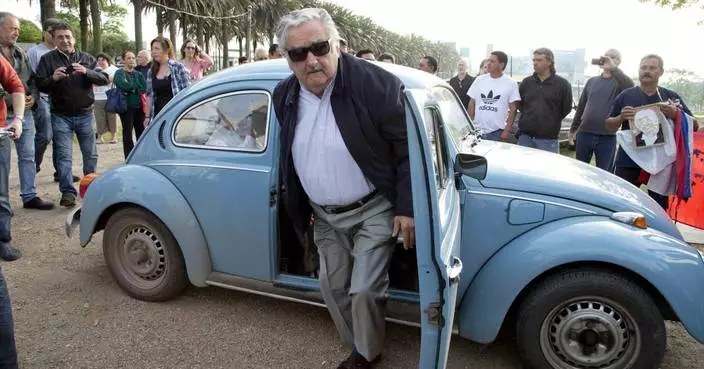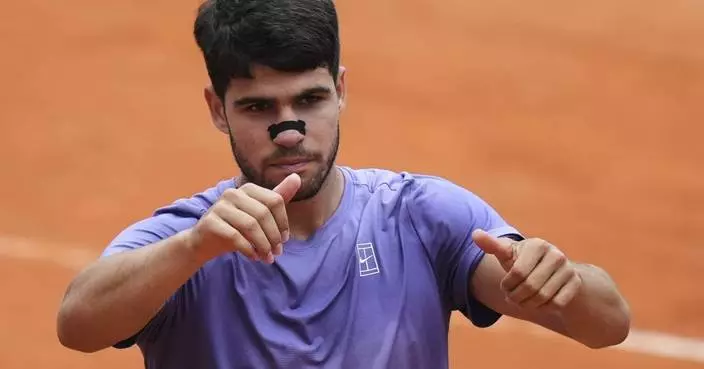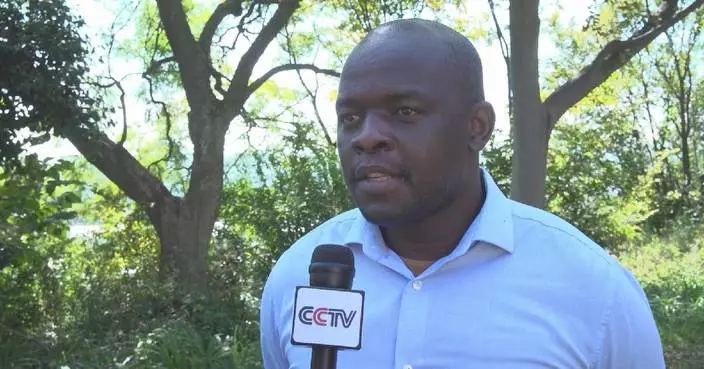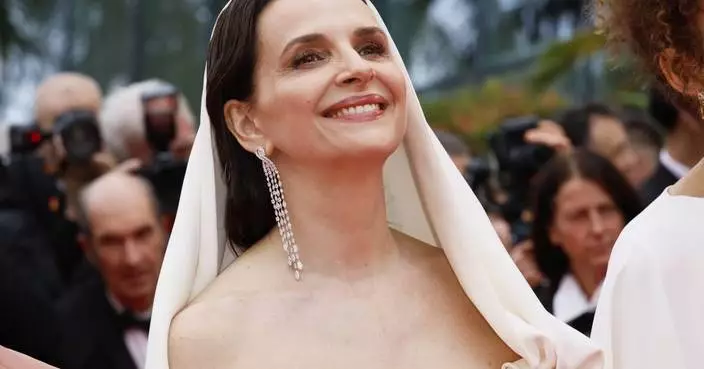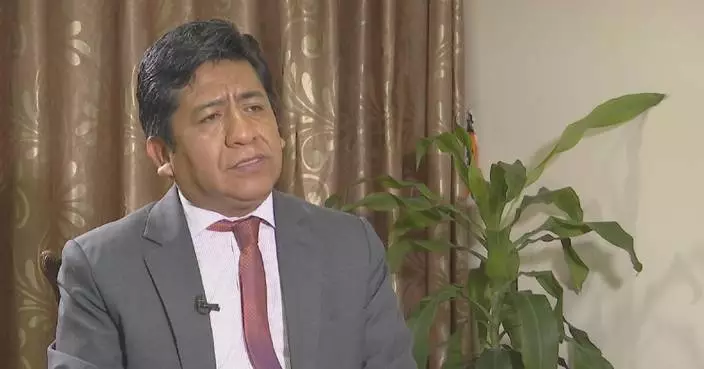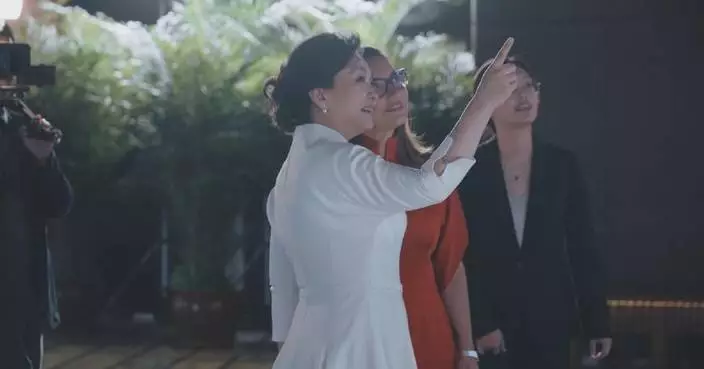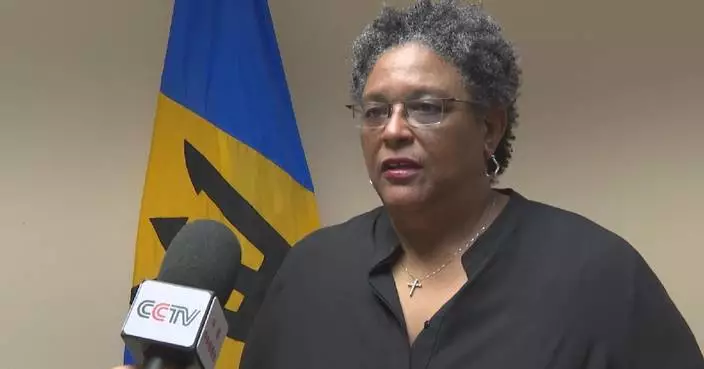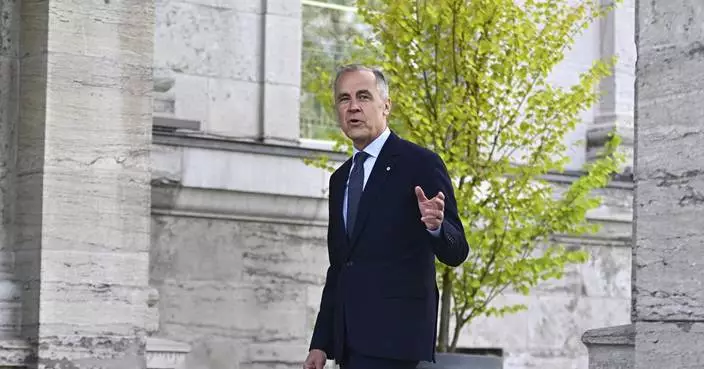Two-time defending Indianapolis 500 champion Josef Newgarden waited nearly three hours to start turning test laps Wednesday.
Colton Herta took advantage of the delayed start to hit some extra balls on the Brickyard golf course — in his fire suit. Kyle Larson, the 2021 Cup champion, 2020 Indy pole winner Marco Andretti and two-time Indy winner Takuma Sato, delayed their refresher courses until mid-afternoon.
Eventually, everything worked out.
All four Indianapolis 500 newcomers have passed the rookie orientation program, each veteran who needed the refresher course was cleared and 2008 Indy winner Scott Dixon overcame the 2-hour, 45-minute delay for an internet connectivity issue to post the fastest lap of the day at 225.182 mph on Indianapolis Motor Speedway's historic 2.5-mile oval.
“How can you not love being here? I really love it a lot more after the last two years,” said Newgarden, who was second-fastest at 225.125. “For most everybody here, it's putting basically a new car on the track and hoping it goes fast. It doesn't mean everything's going to be smooth sailing, but hopefully it goes well the next few weeks.”
The day certainly didn't start well for Newgarden or the other 31 IndyCar drivers. They wanted to see how the hybrid system and changing weight distribution would impact racing and tires the series fastest track.
Instead, they waited for the internet connectivity issue to be resolved.
The original schedule called for series regulars to start their first two-hour session at 10 a.m., followed by another two-hour window for rookies and refresher course drivers before opening the track to everyone for four hours, ending at 6 p.m.
Track officials adapted by shortening the first and third test sessions while still allowing the full two-hour slot for rookies and the veteran IndyCar non-regulars, extending testing until 7 p.m. as a smattering of disappointed fans sat patiently in the infield grandstand and in the seats on the outside of Turn 2. Finally, at 12:45 p.m., the green flag came out as the schedule was revised.
At least that was a sufficient solution on a perfect racing day — sunny, temperatures in the 70s and relatively tame winds for a session reigning Brickyard 400 winner Kyle Larson acknowledged he needed.
"It feels a little different, not quite the same balance I had last year,” the 2021 Cup champ said. “Overall, I felt comfortable but still felt rusty on small, little things, like hitting the buttons. Good to get all that out of the way today and hopefully we'll be better tomorrow.”
Larson is attempting racing's Memorial Day weekend double for the second straight year — completing all 1,100 miles of racing at Indy and Charlotte on the same day. He said he's undecided about giving it a shot again in 2026 while noting this may be his last IndyCar for the foreseeable future.
The series has had trouble establishing radio and data communications between the series new production truck and IndyCar teams, which has been a recurring theme through the first three races this season. New broadcast partner Fox also has had trouble receiving the necessary data for its telecasts.
But series officials issued a statement Wednesday night saying the connectivity issue was unrelated.
“This morning, IndyCar identified a connectivity issue with the series' upgraded software, which temporarily limited the series' timing and scoring and communication capabilities,” the statement read. “While there was a delay to the start of the two-day Indy 500 open test, corrective measures were implemented and the test resumed without further delays. IndyCar will continue to analyze and monitor the software to avoid any delays in the future.”
Still, it was unusual.
“That was the first one, but I’m glad they fixed it,” four-time Indy winner Helio Castroneves said when asked whether he'd ever waited through a delay because of connectivity problem. “It didn’t hurt the program, so far from what I understand.”
Things didn't go perfectly on the track, either.
Within the first hour, the cars of Jack Harvey and Santino Ferrucci both stopped on the track, bringing additional stoppages. Larson thought something was wrong with his car, too, and Graham Rahal's car appeared to tap the wall near the end of testing.
Series officials will crank up the boost for drivers Thursday, producing faster speeds on the second and final day of this week's testing.
Indianapolis will host its annual IndyCar road race May 10. Indianapolis 500 qualifying will be held May 17-18, and the Greatest Spectacle in Racing is set for May 25.
AP auto racing: https://apnews.com/hub/auto-racing
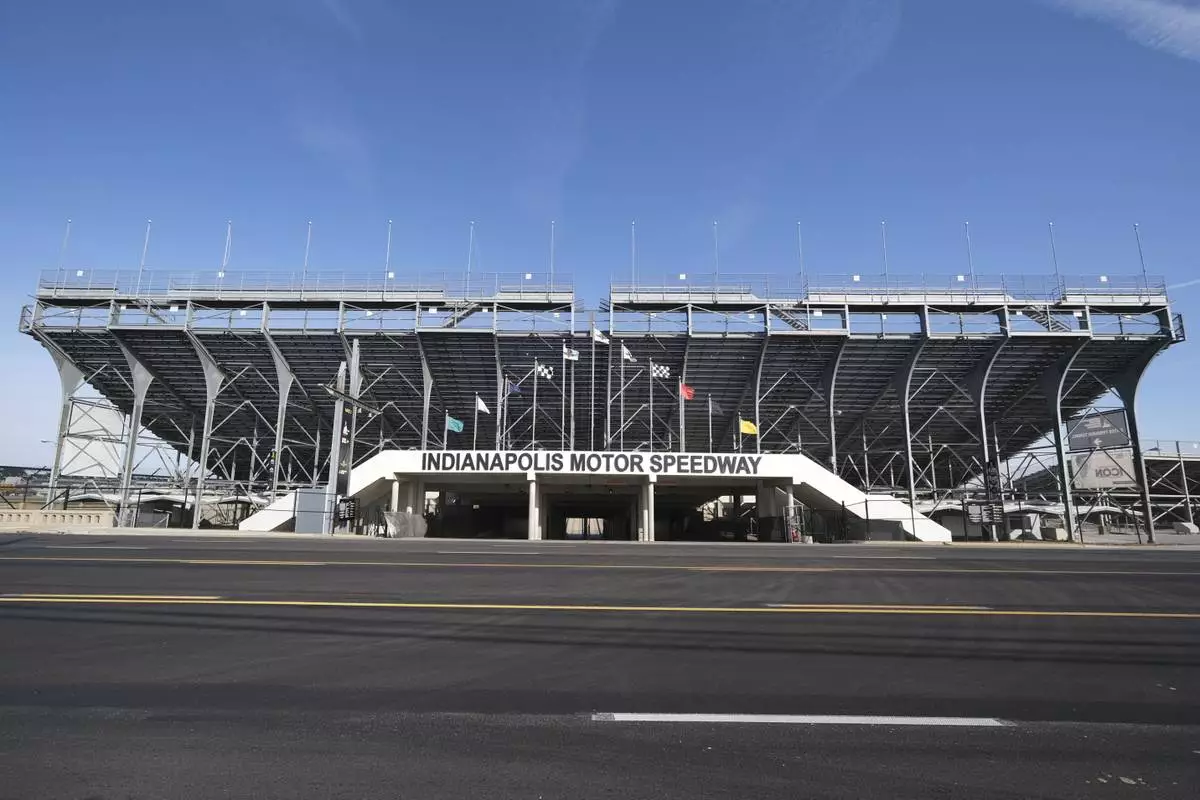
FILE - The main gate of Indianapolis Motor Speedway in Indianapolis is shown Nov. 4, 2019. (AP Photo/AJ Mast, File)
BRUSSELS (AP) — A top European court ruled on Wednesday that the European Commission was wrong to refuse The New York Times access to text messages sent between President Ursula von der Leyen and a pharmaceutical boss during the COVID-19 pandemic.
The case highlights ongoing questions about transparency at the commission, which insists that text messages and other “ephemeral” electronic communications do not necessarily constitute documents of interest that should be saved or made public.
“Today’s decision is a victory for transparency and accountability in the European Union, and it sends a powerful message that ephemeral communications are not beyond the reach of public scrutiny,” said Nicole Taylor, a spokesperson for the New York Times.
The U.S. newspaper’s lawyers “succeeded in rebutting the presumption of non-existence and of non-possession of the requested documents,” according to a statement from the European Union’s General Court in Luxembourg.
The statement said that “the commission cannot merely state that it does not hold the requested documents but must provide credible explanations enabling the public and the court to understand why those documents cannot be found.”
It said that the commission had failed to explain “in a plausible manner” why the messages did not contain important information.
It also said that the commission “has not sufficiently clarified whether the requested text messages were deleted and, if so, whether the deletion was done deliberately or automatically or whether the President’s mobile phone had been replaced in the meantime.”
The commission said it would study the ruling and decide “on next steps,” which could refer to an appeal before the European Court of Justice, the EU's top court. It is unclear if the text messages in question still exist, and if so who has access to them. Von der Leyen herself was responsible for deciding whether the texts constituted documents of value.
“Transparency has always been of paramount importance for the Commission and President von der Leyen,” the commission said in a statement.
Transparency advocates argue that the EU’s increasingly powerful executive branch should maintain a paper trail of all its dealings and release documents when asked.
“This should serve as a catalyst for the Commission to finally change its restrictive attitude to freedom of information,” said Shari Hinds, a policy officer for Transparency International, an anti-corruption group.
The New York Times said text messages were exchanged between von der Leyen and Pfizer CEO Albert Bourla as COVID-19 ravaged communities from Portugal to Finland and the EU scrambled to buy billions of vaccines.
Von der Leyen was under intense scrutiny, especially after AstraZeneca stumbled to deliver vaccine doses to the 27-nation bloc.
Amid fierce international competition for access to the vaccines, von der Leyen was praised for her leading role during the pandemic. But she also faced sharp criticism for the opacity of the negotiations to quickly gather 2.7 billion euros ($2.95 billion) to place an order for more than a billion doses of vaccines.
At the same time as she was reported to be exchanging messages directly with the Pfizer boss, von der Leyen was publicly praising the company as “ a reliable partner.”
Von der Leyen was appointed to head the commission for a second five-year term last July. Critics say the 66-year-old former German defense minister dislikes having her decisions questioned, and that she centralized power at the commission’s headquarters, where she lives when in Brussels.
During her first term, von der Leyen led not only the EU’s pandemic response but also helped to rapidly wean the bloc off its dependency on Russian energy, after President Vladimir Putin used natural gas as a lever to undermine European support for Ukraine.
“It is simply untrue that the Commission President does not use text messages to conduct political business,” said Daniel Freund, a lead anti-corruption lawmaker and a German Green Party member of European Parliament. ”This ruling is a clear defeat for Ursula von der Leyen and a clear rejection of her practice of concealing or hiding her text messages.”
Païvi Leino-Sandberg, a law professor at the University of Helsinki who has a pending legal challenge before the same court about the Commission’s internal documentation rules, called the news “a huge victory for transparency.”
“The Commission lost so completely (in this ruling) and on every possible ground that overturning this in the ECJ seems extremely unlikely," she said.
Lorne Cook in Brussels contributed to this report.
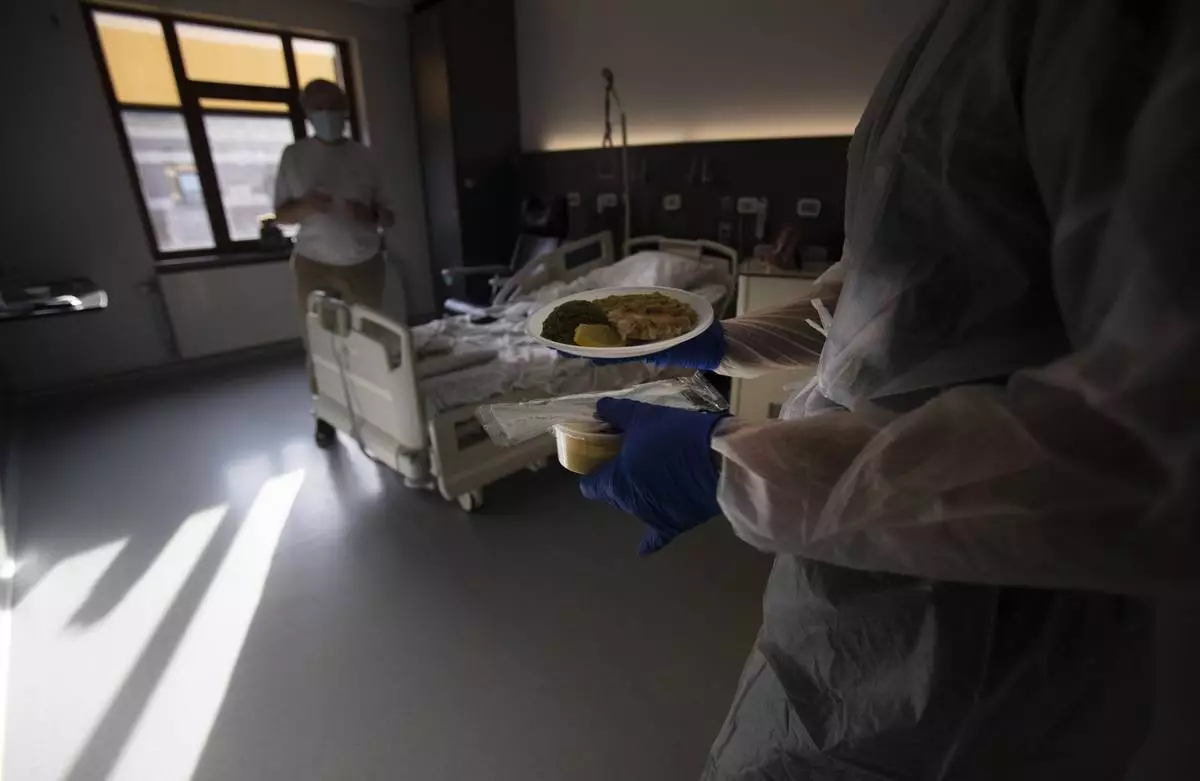
FILE - A Belgian Army medic brings lunch to a patient with COVID-19 at the St. Michiel Hospital in Brussels, Tuesday, Nov. 24, 2020. (AP Photo/Virginia Mayo, File)
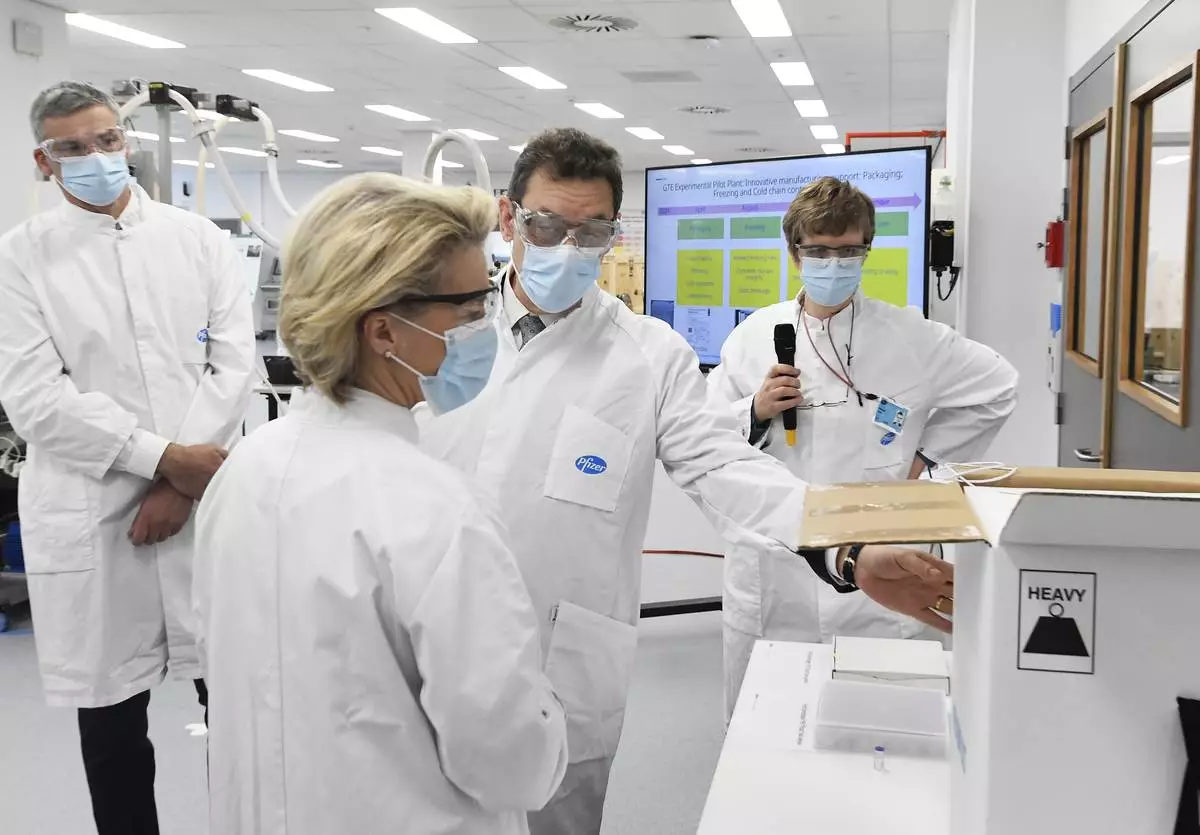
FILE - European Commission President Ursula von der Leyen, second left, speaks with Pfizer CEO Albert Bourla, center right, during an official visit to the Pfizer pharmaceutical company in Puurs, Belgium, Friday, April 23, 2021. (John Thys, Pool via AP, File)
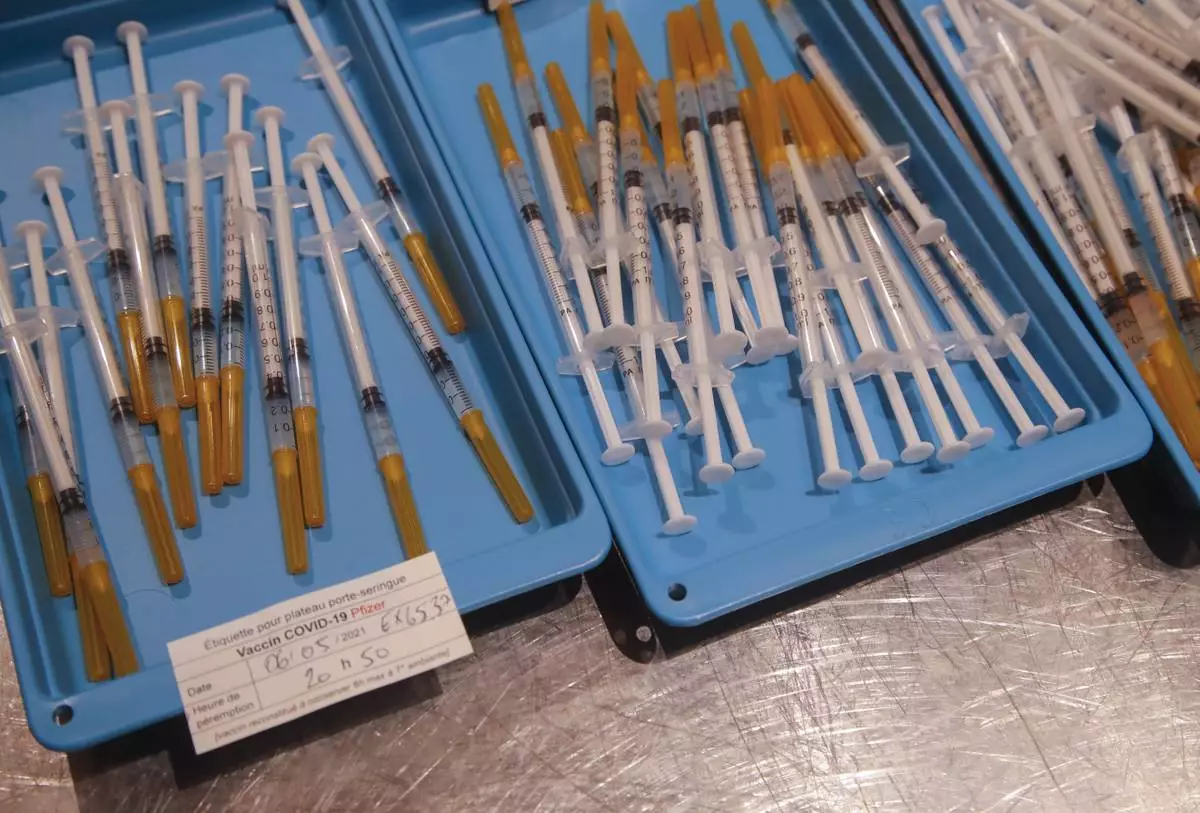
FILE - Syringes with the Pfizer vaccine against COVID-19 disease are ready at a new vaccination center in Paris, Thursday, May 6, 2021. (AP Photo/Michel Euler, File)
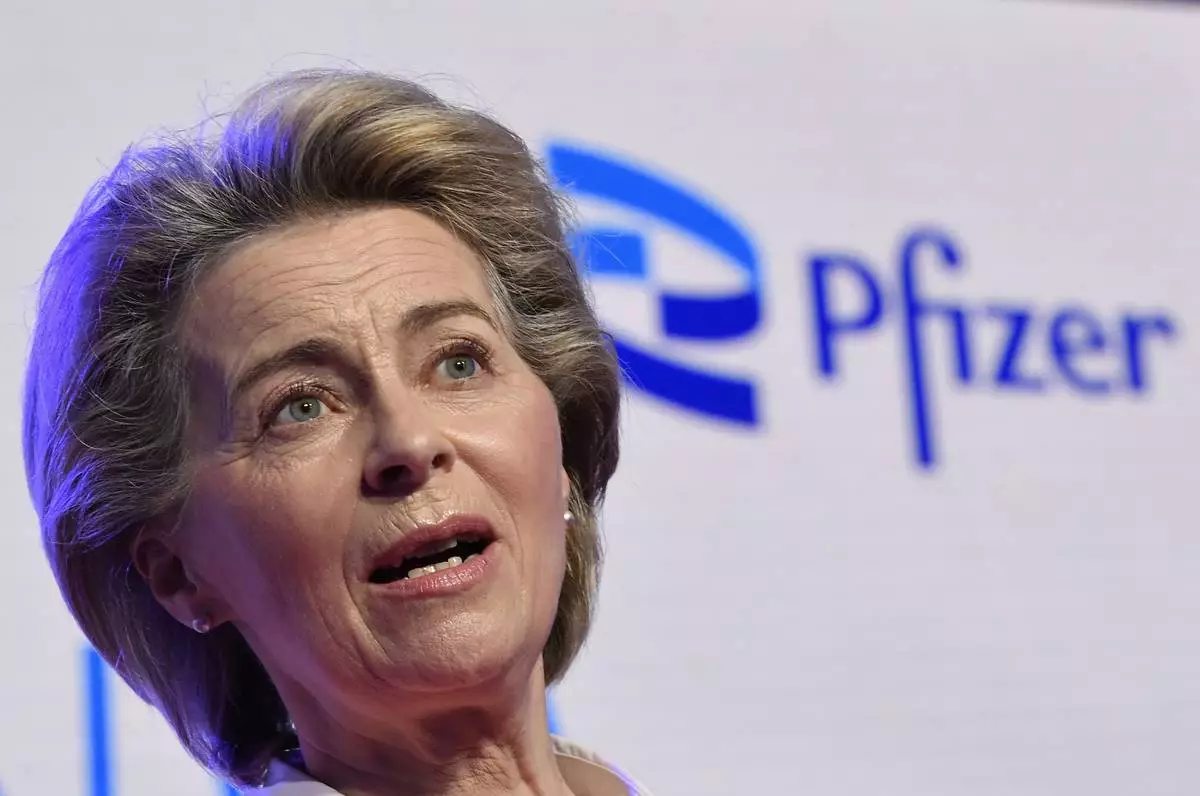
FILE - European Commission President Ursula von der Leyen makes a statement during an official visit to the Pfizer pharmaceutical company in Puurs, Belgium, Friday, April 23, 2021. (John Thys, Pool via AP, File)



